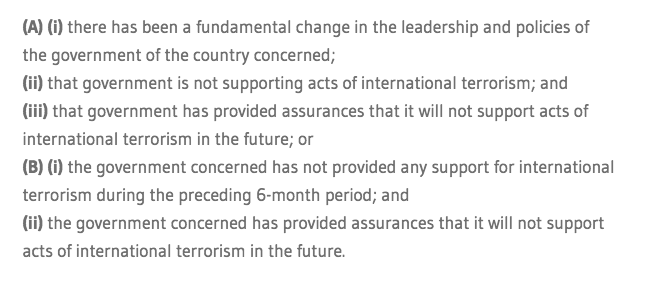Obama’s Disappointing Nominee for US Ambassador to Mexico
Ana Quintana / Ricardo Pita /
President Barack Obama has nominated Roberta Jacobson, the current assistant secretary of state for Western Hemisphere affairs, to be the next U.S. ambassador to Mexico in spite of bipartisan objections.
As the Senate prepares to take up her confirmation, there are a few key considerations that members should evaluate before casting their votes:
Under Jacobson’s direction, the State Department manipulated official reports and designations to advance and facilitate the Obama’s radical Cuba policy. Section 6(j) of the Export Administration Act clearly states that a terrorism designation shall be repealed only one of two ways:
It is easy to deduce that Cuba fails to meet the requirements of both sections. Cuba’s leadership has not changed, nor has its political system.
While Cuba’s financial circumstances have curbed its ability to support international terrorism, its alliances with Syria, Iran, and North Korea should remain a source of concern. It is also unlikely that the U.S. could ever receive genuine guarantees against future actions, as recent talks in Havana proved. Cuba’s top diplomat stated: “Change in Cuba isn’t negotiable.”
Later that year and despite overwhelming evidence, Cuba was removed from the State Department’s human trafficking blacklist. From forced labor domestically and abroad, the Castro regime is a habitual trafficker of humans. A Reuters investigation found that Jacobson’s bureau directly overruled the human trafficking subject matter experts.
Any ambassador or civil servant should have the trust of Congress. Jacobson has soured that relationship.
During a May 8, 2014, hearing on human rights situation in Venezuela, Jacobson misrepresented the Venezuelan democratic opposition’s stance to U.S. human rights sanctions against Venezuelan government officials. This was in the midst of a violent crackdown by the Maduro regime against anti-government activists. Hundreds were imprisoned, and upwards of 40 protesters were killed by the Venezuelan government. She later corrected the record.
As chief negotiator for the U.S. with the Cuban government, Jacobson consistently assured Congress that re-establishment of relations would remain focused on human rights progress. Yet for the past year, not a single precondition on changed behavior has been placed on the Cuban government. In fact, 2015 was one of the most dangerous years for Cuban democracy activists, with high levels of repression not seen in decades.
The recent revelation of a U.S. Hellfire missile in Cuba (that has been in Cuba for a year) raises the question as to why Jacobson never once mentioned it during her numerous congressional testimonies.
America’s relationship with Mexico is of vital importance. Not only do we share an almost 2,000-mile-long border, but the country is our third largest trading partner and a member of the North American Free Trade Agreement.
Under Jacobson’s watch, the State Department failed to engage our allies in the region meaningfully to further U.S. interests. Her shortcomings as the top diplomat in the region and the lack of confidence a bipartisan coalition in Congress have should raise concerns with the entire legislative body.
Both the U.S. and Mexico deserve better.

